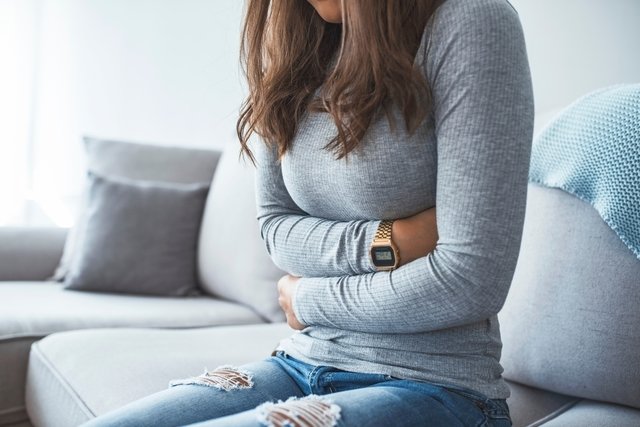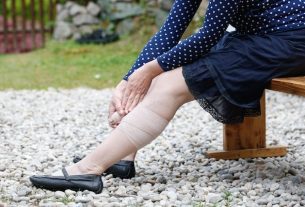Constipation can happen as a consequence of some habits, such as a diet low in fiber, drinking few fluids and not doing physical activity, for example, which can lead to fewer bowel movements and dry stools.
As a consequence of this situation, it is possible for the person to feel uncomfortable, have abdominal swelling, become more irritated and make a lot of effort to evacuate. Find out more about constipation.
Therefore, it is important to identify the cause of constipation so that actions can be taken to promote bowel movement, such as increasing the consumption of foods rich in fiber and starting to exercise, for example.

Main causes
The main causes of constipation are:
1. Low fiber diet
Fiber is important for the proper functioning of the intestine and for making feces softer, making them easier to eliminate. Therefore, when you have a diet low in fiber, your stools become more hardened and your intestines do not function properly, resulting in constipation.
What to do: To avoid constipation, it is important to add fiber-rich foods to your diet, as well as increase your consumption of water and teas, for example. For good bowel function, it is recommended to consume around 20 to 40 g of fiber per day, which can be present in fruits and vegetables, whole foods and chickpeas, for example.
2. Drinking few fluids
Drinking water throughout the day promotes bowel function and, consequently, the elimination of feces. Furthermore, water is important so that soluble fibers are dissolved and a type of gel is formed in the stomach and intestine that ensures a greater feeling of satiety.
What to do: It is recommended that at least 2 liters of water be consumed per day so that the intestine can function properly and so that there are other benefits. In addition to water, other liquids can be consumed, such as teas or fruit juices, for example. Discover the main benefits of drinking water.
3. Not doing physical activity
A sedentary lifestyle can also result in constipation, because metabolism and bowel movements decrease, causing feces to remain in the intestine for longer.
What to do: It is important to perform physical activities at least 30 minutes a day so that the intestine can function properly and the symptoms of constipation are relieved. Furthermore, regular physical exercise promotes increased stamina, improves immunity and promotes a feeling of well-being. See other benefits of physical activity.
4. Not going to the bathroom when you feel like it
When a person does not go to the bathroom when they feel like it, the feces return to the intestine and become more dry and hardened and the intestine ends up slowly losing its functions, which makes it more difficult to defecate, making it necessary to carry out more strength and favoring the appearance of hemorrhoids, for example.
What to do: An interesting strategy to regulate your intestines and avoid constipation is to go to the bathroom at the same time every day, even if you don’t feel like it, and stay for about 15 to 20 minutes. This causes a biological clock to be established and constipation to be combated.
Learn how to poop the right way to avoid constipation by watching the following video:
5. Anxiety and nervousness
Psychological and emotional situations, such as anxiety and nervousness, for example, can reduce blood flow to the intestine, for example, and cause intestinal transit to be affected, resulting in constipation.
What to do: In these cases, it is important to identify the cause of constipation and try to relax, as this allows the symptoms associated with constipation to be controlled and bowel function to be regulated.
6. Excessive use of laxatives
Frequent use of laxatives can irritate the mucosa and reduce the roughness of the intestine, making it difficult to move feces and preventing their release. Furthermore, the frequent use of laxatives leads to dependence, that is, the intestine only works after using the laxatives.
What to do: To avoid the use of laxatives, it is important to stimulate bowel function in a natural way, that is, by increasing fiber consumption, practicing physical activity and drinking at least 2 liters of water per day.
The use of laxatives should only be done with medical recommendation, when the person needs to undergo some type of diagnostic test or when even with adequate nutrition they are unable to have a bowel movement. Discover some remedies that help combat constipation.

Sign up for our newsletter and stay up to date with exclusive news
that can transform your routine!
Warning: Undefined array key "title" in /home/storelat/public_html/wp-content/plugins/link-whisper-premium/templates/frontend/related-posts.php on line 12
Warning: Undefined array key "title_tag" in /home/storelat/public_html/wp-content/plugins/link-whisper-premium/templates/frontend/related-posts.php on line 13



